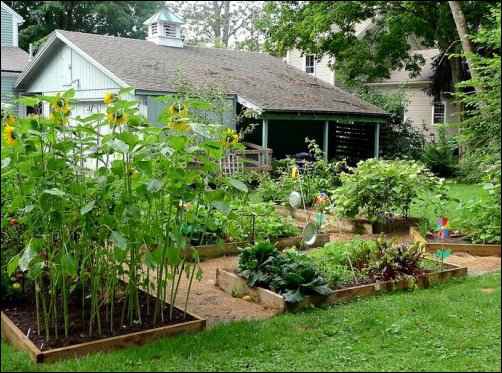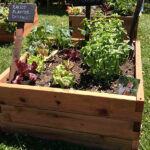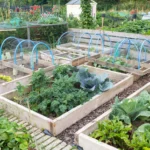Creating and protecting an orchard on a 15-acre homestead is a rewarding endeavor for many homestead dreamers. It requires strategic planning and a deep understanding of the land. In this article, we will explore various strategies to maintain and protect your orchard, ensuring its health and productivity for years to come.

Understanding Your Land
Before you start planting, its essential to understand the unique characteristics of your land. This includes soil type, climate, and topography. Conducting a soil test will help you determine the nutrients available and what amendments might be necessary to create the ideal conditions for your orchard.
Choosing the Right Trees
Selecting the right types of fruit trees is crucial for the success of your orchard. Consider factors like climate zone, soil compatibility, and the amount of sunlight the area receives. Some popular choices for orchards include apple, peach, and cherry trees.
Climate Considerations
Understanding the climate of your homestead is crucial. Different trees thrive under different conditions, and its important to choose varieties that are well-suited to your region’s climate.
Soil Preparation
Preparing your soil involves adding necessary nutrients and ensuring proper drainage. This might include adding organic matter or using raised beds to improve soil structure.
Implementing Erosion Control Measures
To protect your trees, consider implementing erosion control measures. Techniques such as terracing or planting cover crops can help prevent soil erosion, which can be detrimental to the health of your orchard. For more detailed strategies, you can visit Erosion Control.
Water Management
Efficient water management is critical. Installing a drip irrigation system can ensure your trees receive the right amount of water, reducing waste and promoting healthy growth.
Rainwater Harvesting
Consider setting up a rainwater harvesting system to utilize natural water sources and reduce reliance on municipal water.
Protecting Against Pests and Wildlife
Wildlife and pests can pose a significant threat to your orchard. Installing barriers like fences or using natural pest repellents can help protect your trees.
Natural Pest Control
Adopt natural pest control methods such as introducing beneficial insects or using organic sprays to minimize pest damage.
Seasonal Maintenance Practices
Regular maintenance is key to a thriving orchard. This includes pruning, mulching, and fertilizing your trees at the right times of the year. For tips on preparing your orchard for winter, check out Winter Prep.
Pruning Techniques
Proper pruning encourages healthy growth and fruit production. Learn the best times and methods for pruning your specific types of fruit trees.
Income Diversification
Your orchard can also be a source of income. Selling fruit at local markets or even creating value-added products like jams can diversify your homestead’s income. To explore more ideas, you can visit Income Diversification.
Embracing Sustainable Practices
Sustainable practices are essential for long-term success. This includes minimizing chemical use, conserving water, and enhancing biodiversity within your orchard.
Organic Certification
Consider working towards organic certification to enhance the appeal of your products and commit to environmentally friendly practices.
Incorporating Livestock
Incorporating livestock such as chickens or goats can be beneficial for your orchard. They can help with pest control and fertilization. For more on raising goats, check out Dairy Goats.
Community Engagement
Engaging with your community can provide support and knowledge sharing opportunities. Consider joining local homesteading groups or attending workshops.
Exploring Homestead Layouts
Designing a functional layout that integrates your orchard with other elements of your homestead is crucial. For layout ideas, visit the Tiny Life website.
Conclusion
Protecting and maintaining an orchard on your 15-acre homestead is a fulfilling journey that requires dedication and knowledge. By understanding your land, choosing the right trees, and implementing sustainable practices, you can create a thriving orchard that benefits your family and community.

FAQs
How do I choose the right trees for my orchard?
Consider factors such as climate, soil compatibility, and sunlight availability. Conducting research on local varieties can also be beneficial.
What are some natural pest control methods?
Introducing beneficial insects and using organic sprays are effective natural pest control methods.
How can I diversify income from my orchard?
Selling fruit at markets and creating value-added products like jams are great ways to diversify your income.






